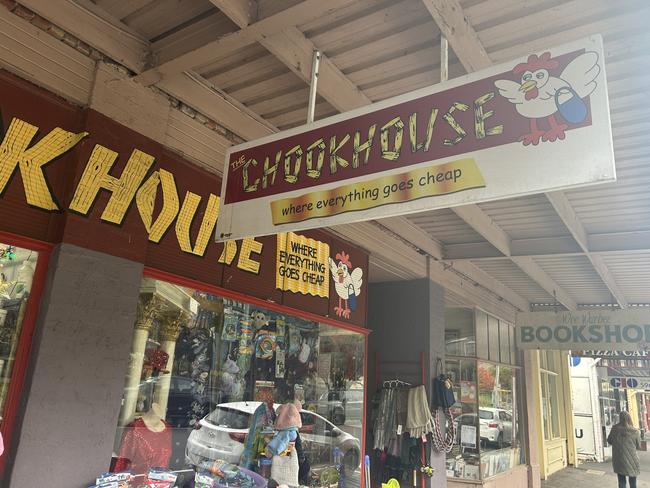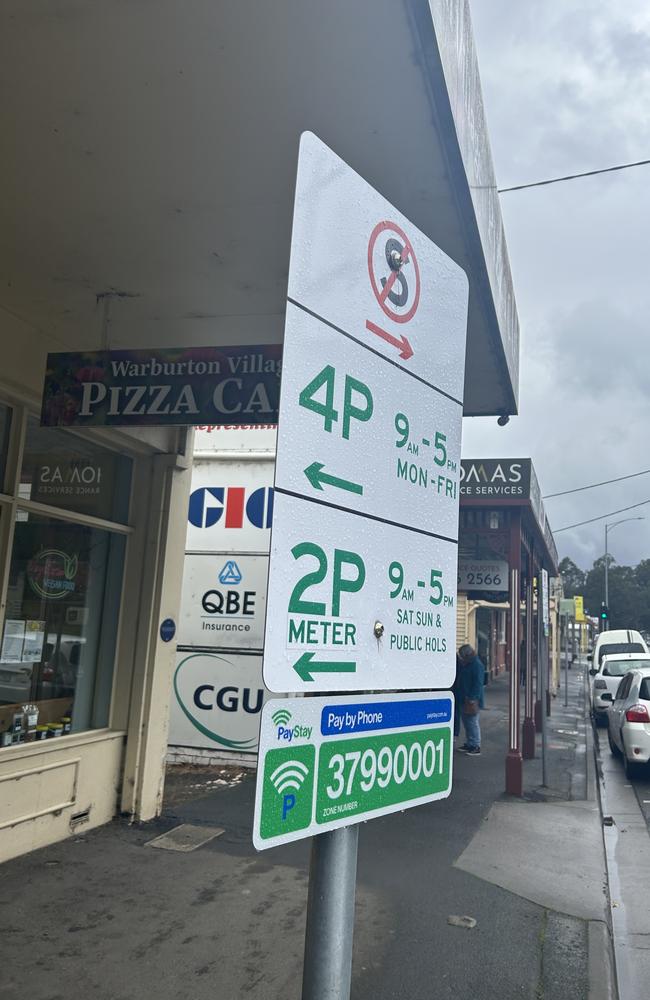How the Warburton paid parking pilot is affecting traders, tourists
Warburton traders have been forced to close early on weekends, blaming a paid parking trial for a drop off in tourists spending time in the town.

Outer East
Don't miss out on the headlines from Outer East. Followed categories will be added to My News.
Warburton shopkeepers say a controversial paid parking trial has hurt local businesses, with parking fees and “confusing meters” driving customers away from the popular tourist town.
It comes Yarra Ranges Council launched a 14 month paid parking pilot last month — which includes location specific parking costs — for the town on weekends and public holidays.
On those days tourists have been slugged $6 an hour to park at WaterWorld and $3.50 per hour on Station St and Thomas Ave, excluding transaction fees.
Parking along the Warburton Highway is free for the first hour, then $6 for each additional hour.
Those who refuse to pay are hit with a $99 fine.
Yarra Ranges residents can apply for exemptions to park for free in the town.
But local businesses have slammed the trial, blaming it for a recent drop off in tourists visiting and spending time in the town.

Chookhouse employee Tayla Osborn said her store had closed early every weekend since the paid parking had been in place due to a lack of foot traffic.
“People are spending much less time browsing,” she said.
“They are choosing between grabbing a coffee and a bite to eat or wandering around the shops because they are worried about parking running out.
“When families come for a day and only have a little bit of money to spend, that is going to parking costs and not to Warburton stores.”
Treehouse Nature and Healing owner Dwayne McCumiskey said he regularly heard complaints from customers unsure on how to use the new meters
“People are coming in and spending less time wandering around our store because they are worried about their parking running out or getting a ticket because they are unsure about the new machines,” he said.
“It is just another hassle for Warburton traders who have just found their feet again after Covid.”

Mr McCumiskey said while the parking machines had freed up parking spaces it was a blow for the town.
“I just hope the revenue is going back into Warburton and its infrastructure,” he said.
Melbourne local Trish Canner said she often took weekend trips to Warburton with her husband but has since changed her visits to weekdays to avoid paying for parking.
“I get it is designed to free up some parking spaces because it is so hard to find one in the peak of summer but it just seems like a bit of a cash grab,” she said.
“It’s just another cost added to a day out when everything is already so expensive.
“We have thought about going to other Yarra Ranges towns because we love the area but need to save as much as possible.”
A Yarra Ranges Council spokeswoman said while the was some concern from residents at the start of the pilot no formal complaints have been made to council since it was implemented.
“Council is aware that while Warburton attracts a large number of visitors, unfortunately the amount of money spent in the area is low, affecting the local economy,” she said.
“Several visits and workshops were held with traders over the past year to ensure that the timed parking signs worked for their business.
“As a result of this engagement, traders chose to offer the first hour free for parking over the weekend and on public holidays on the Warburton Highway to encourage parking
in front of the shops and help increase the turnover of visitors.”
The spokeswoman said the finds raised from the visitor paid parking pilot will help maintain council infrastructure used by tourists.
“Yarra Ranges’ residents are bearing the cost every year for maintaining council infrastructure that is heavily used by visitors, such as car parks, footpaths, public toilets, playgrounds, BBQs, and park furniture, as well as other services like grass mowing, tree management, and township cleaning,” she said.
“Upon completion of the trial in July 2026, there will be a review which will examine the impact on local businesses, tourist and spending data, parking occupancy numbers, enforcement data and community and traders feedback.”




